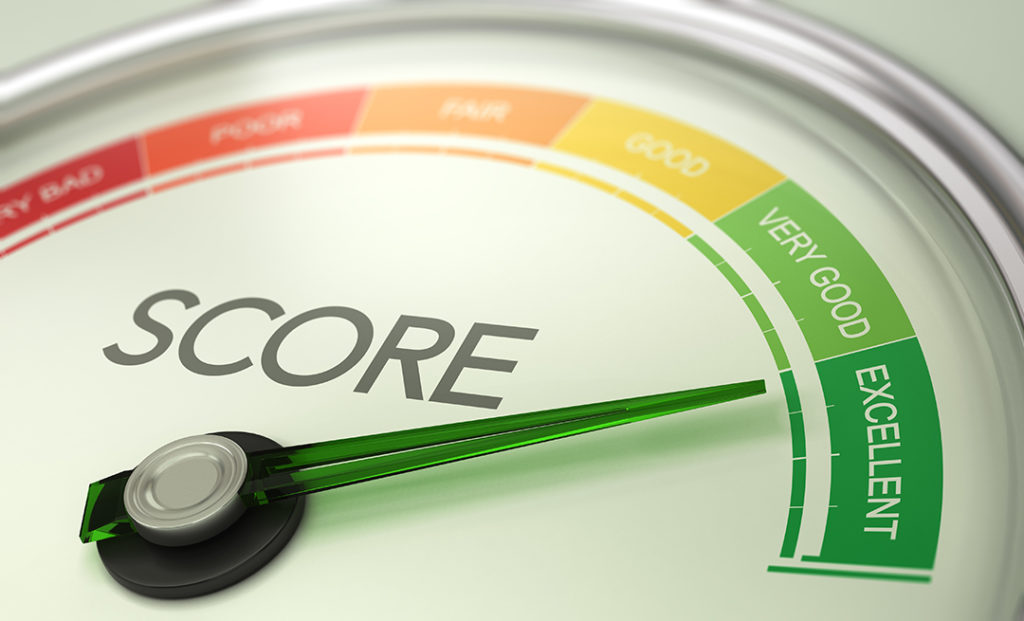Update August 23, 2021
What Is a Credit Score and How Is it Calculated?
Approximately 189 million Americans have at least one credit card, and the average is 2.6 cards. Many Americans are drowning in debt or fear going that way, and it’s primarily due to a misunderstanding of how the credit system works. Establishing credit may be easy enough but maintaining a good credit rating is no piece of cake unless you apply common sense and the right effort.
A good credit score is required for improving your creditworthiness in the eyes of lenders. Your credit score is a significant factor in determining a lender’s final decision to offer credit. Other factors include the types of loans you have, such as a mortgage or an auto loan, length of credit history, payment history, and total credit card balances. Those factors also work together on your credit report when evaluating your credit history, your credit utilization, and what interest rates and credit limits will be applied to new credit lines. The main credit bureaus average your credit score utilizing the above factors and then release it based on their schedule – which maybe every 45 days or longer.
Where Does Your Credit Score Start and What Is the Highest Credit Score?
It’s possible to have absolutely no recognized credit score. It doesn’t mean you have bad credit; it merely means that companies can’t offer credit to you because you haven’t yet established credit history. That makes it far more challenging to obtain a credit card. No credit means that absolutely no score will show up on a credit report. Once you do establish credit, your credit score can range between 280 and 850. Your FICO score, which is the score most creditors focus on, starts as low as 300.
What is Considered a Good or Bad Score?
Each credit reporting company such as Equifax, Experian, and TransUnion uses a slightly different credit score range. However, each credit scoring model pretty much agrees with where a good credit score and bad credit score belong on their charts. According to the FICO score, bad credit ranges between 300 and 649 while fair covers 650 to 699. By the time your credit hits the 700 marks, your credit report, credit history, and payment history are generally thought to be pretty solid, and you’re considered within the very good to excellent credit score range. At this point, credit card issuers and other lenders will likely start begging you to open new lines of credit, such as a car loan or another credit card. That’s also an ideal time to consider replacing old cards with credit cards that have lower interest rates, fewer fees, and greater benefits.

Credit Scores Over 800
A score of 800 or above is considered an excellent credit score, but only about 20% of Americans reach 800 on their credit report. While some credit scoring goes up to 900, 850 is generally considered a “perfect” score by all credit bureaus. According to the Washington Post, while it’s not impossible to achieve the ultimate score, only 1.5% of Americans are able to do so in their lifetime. That shouldn’t deter you if you want to get there. It can be done; it just takes time, patience, and a lot of effort. Of course, if you can reach such a credit score, you’re looking at receiving the best interest rates possible for your finances and credit needs.
The Importance of Building Your Credit Score
Life is expensive, and a good credit score can help make it more enjoyable and less stressful overall. Cell phone plans, auto loans, new rental agreements, mortgages, or other property investments may require higher credit limits. Unless you qualify for a free ride, future or ongoing educational goals may also necessitate a good credit score to get the best possible interest rates on student loans. Depending on the state in which you live, modified credit reports can be requested by employers, especially in careers dealing with financial matters. Additionally, having bad credit may even impact your chances of getting a better job.
The Top 5 Places to Check Your Credit Score
Whether looking to open new accounts, improve bad credit, or verify your payment history, you can quickly check and monitor your credit score at the following places:
CreditKarma – Since 2007, CreditKarma has been an easy and free way to keep up with your credit accounts, credit utilization, payment history, and credit scoring for TransUnion and Equifax credit bureaus.
Equifax – As one of the three main credit bureaus, along with Experian and TransUnion, Equifax collects financial information on over 88 million businesses and 800 million consumers globally.
Experian – Located in Ireland, Experian handles credit scoring for over 1 billion people and businesses worldwide. You can also discover your FICO score there.
TransUnion – Over 1 billion credit profiles across 30 countries are reported via TransUnion, as well as the credit history of over 200 million American consumers and 65,000 businesses.
VantageScore – VantageScore was created by the three main credit bureaus, and it helps predict how you use your money. You can also keep up with your current credit score.
Related Articles:
- Best Free Prepaid Card with no fees
- The Ultimate Expedia Cashback & Coupon Code Deal Hack
- Mentos Chewy Mints Coupons
- 17 Ways to Make Money Online in 2020
- How to Check My Amazon Gift Card Balance
- 10 Best Ways to Earn Starbucks Rewards in 2020
- How to Make Money with Online Games
- 6 Best Apps to Sell Stuff
- Myview Review and Alternatives
- 10 Best Work From Home & Online Jobs to Earn Money in 2021
- How to Make Money Investing: Get Started with Just $100
- Chime is the Bank of the Future: Do it All from Your Couch
